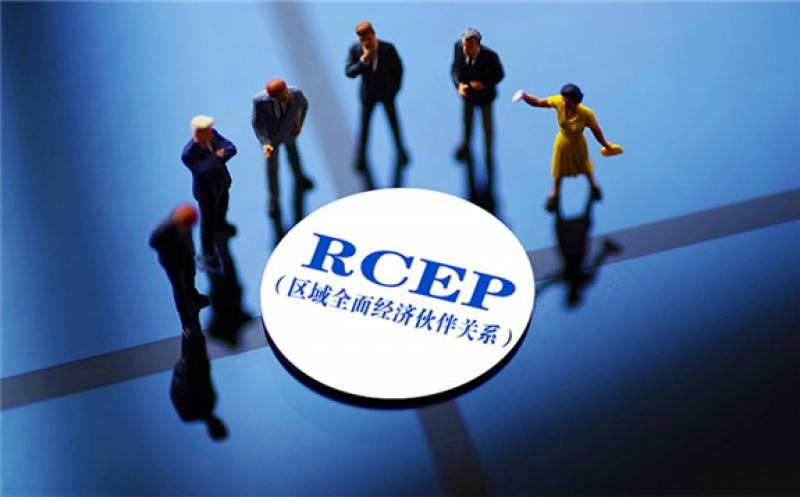Economic ties between Japan and China face a test as Japan is being instigated by the US to curb technology exports to China. While such Tokyo-Washington alliance would harm both China and Japan and their progressive trade ties, it is unlikely to hurt multilateral trade frameworks involving the two countries like the Regional Comprehensive Economic Partnership (RCEP), analysts said.

According to a report by the Japan News on Monday, the US and Japan may cooperate with like-minded countries in Europe to block exports of advanced technologies to China via the creation of a multilateral technological export regulation framework.
The new regulation will likely involve advanced technologies like semiconductor manufacturing equipment, quantum cryptography and artificial intelligence, the report said.
This is the latest example of tactics used by the Biden administration to impede China's technological progress via partnerships with US allies. Although somewhat different from the Trump administration's direct, hardcore sanctions, the move reflects a similar political mindset of curbing China's technological progress by restricting external supplies.
Last year, the US and Europe formed the so-called US-European Union Trade and Technology Council (TTC), with the intention believed to be strengthening US-EU domestic supply chains involving strategic technologies in order to reduce the members' reliance on the Chinese market.
What's new is that the tactics also cast a shadow on trade and economic relations between China and Japan, which seemed promising with the recent implementation of the RCEP.
"Whether Japan will surrender to the pressure of the US will be a big test for Japan. However, the trade arrangements under the RCEP agreement will not be affected by this, and the pact should be implemented in accordance with the established timetable," Zhao Gancheng, director of the Center for Asia-Pacific Studies at the Shanghai Institute for International Studies, told the Global Times on Monday.
According to analysts, the impact of such an export regulatory alliance would be huge for trade and industries, as China's major technology suppliers, including Japan and Europe, will be forced to reallocate their supply chains and break the current economic model of "Japanese/EU key technical components and Chinese capacities."
"This would put Japan and Europe under great pressure as finding substitutes for Chinese manufacturers is difficult, considering that China's industrial maturity and integrity is the best after years of development," Cui Hongjian, director of the Department of European Studies at the China Institute of International Studies, told the Global Times on Monday.
According to Cui, Western countries' allied attacks on Huawei, which left many countries with the headache of finding substitute 5G solutions, has been a lesson for many overseas countries.
Such an alliance would also hurt trade relations between China and Japan, which could inflict wound on Japan as the latter is quite reliant on China for high-tech components.
According to an article published by Marukawa Tomoo, a professor at the Institute of Social Science of the University of Tokyo, in Japanese Studies magazine, semiconductor trade accounted for 24 percent of intra-regional trade in Japan, the Chinese mainland, South Korea and the island of Taiwan. If this trade is cut off, it would reduce regional trade by about one-fourth, which would bring about huge consequences.
"If combined export controls are implemented, China's trade with developed countries will encounter a bottleneck, and possibilities exist that China's major trading partners will shift toward smaller developing countries," Cui said. "There will be no victor in the strife."
Given the potential negative impact for Japan, it is likely that Japan will achieve a balance between China and the US by making oral promises to the US, but being more cautious when it comes to actual implementation, experts stressed.
"We will see if Japan comes up with legislation, regulations or merely guidelines for companies that have technology trade with China. If the rules are not written into law, then Japanese companies will have leeway in doing business with China," Cui said.
He also predicted that Japan might make distinctions among different industries. It might not implement harsh regulations for industries that already have deep connections with Chinese companies, but for emerging high technologies, chances are small they will cooperate with China in the future.
Zhao said that the RCEP provides a framework for China, Japan and South Korea to cooperate beyond geopolitics. If the three countries make good use of the framework agreement and further expand trade under the framework, it will be a big blow to the US.